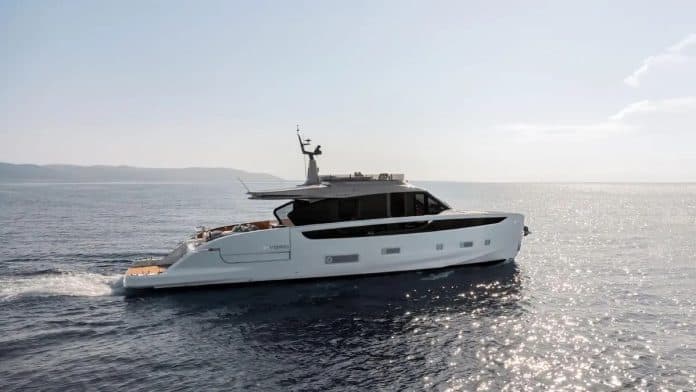Volvo Pentaʼs net sales have decreased slightly in the last quarter, however the company’s operating margin improved.
The organisation’s latest financial results show an increase share of larger engines with net sales for the 12-month rolling period of SEK 20.1 billion, down 4% when adjusted for exchange rate fluctuations.
Sales for Q3 were SEK 4.7 billion, down by 2% when adjusted for currency, with sales of engines decreasing by 3%.
Deliveries decreased by 18% and order intake also decreased by 18%, mainly due to lower demand for smaller engines.
There was adjusted and reported operating income of SEK 831 million (790) with an operating margin of 17.7% (15.9).
In its latest financial statement, Volvo Group, parent company to Volvo Penta, says demand for smaller powerboats continued to be adversely impacted by the unfavourable business cycle in Q3 while the patrol and offshore wind sectors continued to show resilience.
Volvo Penta IPS
Demand for power generation applications remained on good levels.
Price realisation and a favourable product mix contributed to the profitability of Volvo Penta, but these were partly offset by lower volumes.
Compared with Q3 2023, the currency impact on operating income was negative in an amount of SEK 106 million.
Sales increased slightly in Africa and Oceania and Asia with the largest decrease seen across Europe (11%)
Highlights of the quarter included the first vessel with the Volvo Penta IPS (Inboard Performance System) Professional platform entering operation in a crew transport vessel operated by Northern Offshore Services.
The fully integrated IPS continually manages and optimises engine use based on real-time needs during operation.
In addition, the world’s first yacht to pilot Volvo Penta’s helm-to-propeller hybrid-electric package with Volvo Penta IPS was unveiled in collaboration with Azimut Yachts.




